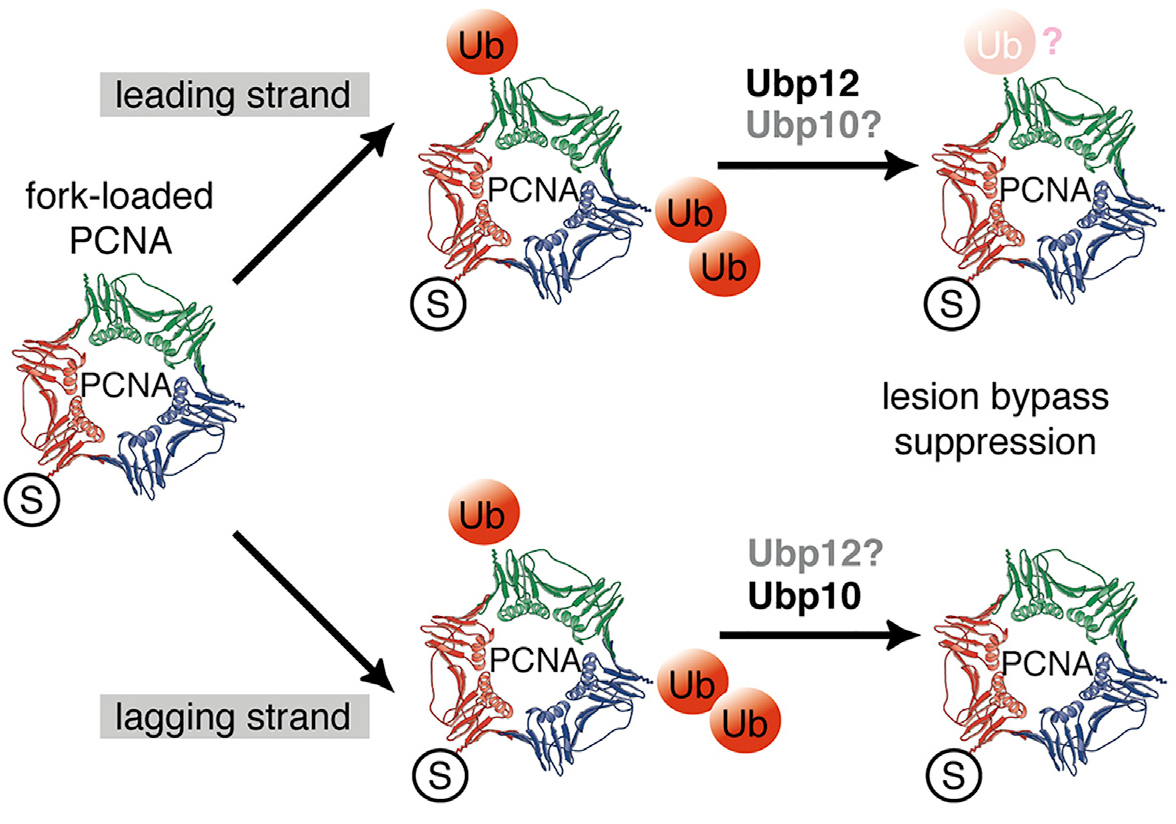
A work published in Cell Reports carried out by the group led by Dr. Rodrigo Bermejo at Centro de Investigaciones Biológicas (CSIC) in collaboration with the group of Prof. Avelino Bueno at the Centro de Investigación del Cáncer (USAL-CSIC), revealed a mechanism that modulates DNA damage tolerance to promote timely chromosome replication and preserve genome integrity.
Cells need to divide and replicate their DNA in order for organisms to develop and be maintained during life. Replication faces several challenges, such as the presence of lesions altering the chemical structure of DNA, that can block replication machineries causing cell death or altering genetic information. However, cells are equipped with robust mechanisms to tolerate DNA damage and allow replication across unrepaired lesions. DNA damage tolerance is critically triggered by ubiquitylation of the essential replication factor PCNA (Proliferating Cell Nuclear Antigen), but how is it tuned down was not known to date.
Research by Álvarez et al., shows that specialized ubiquitin proteases Ubp10 and Ubp12 cooperate to downregulate DNA damage tolerance by differently removing ubiquitin from chains attached to PCNA. In their absence, PCNA is abnormally ubiquitylated and DNA replication is severely slowed down. Hence, a coordinated de-ubiquitylation of PCNA is critical for cells to timely replicate their genomes, even in the absence of external insults. Dr. Bermejo’s group used genomic approaches to demonstrate that the function of PCNA ubiquitin proteases is exerted through an asymmetric association to replication machineries along the entire genome.
These findings provide key insight on the mechanisms that counteract aging and protect our cells from cancer development.
Reference: PCNA Deubiquitylases Control DNA Damage Bypass at Replication Forks. Vanesa Álvarez, Camilla Frattini, María P. Sacristán, Alfonso Gallego-Sánchez, Rodrigo Bermejo y Avelino Bueno (2019) Cell Reports. https://doi.org/10.1016/j.celrep.2019.09.054.
More information:
Centro de Investigación del Cáncer (CIC) press release: link.

